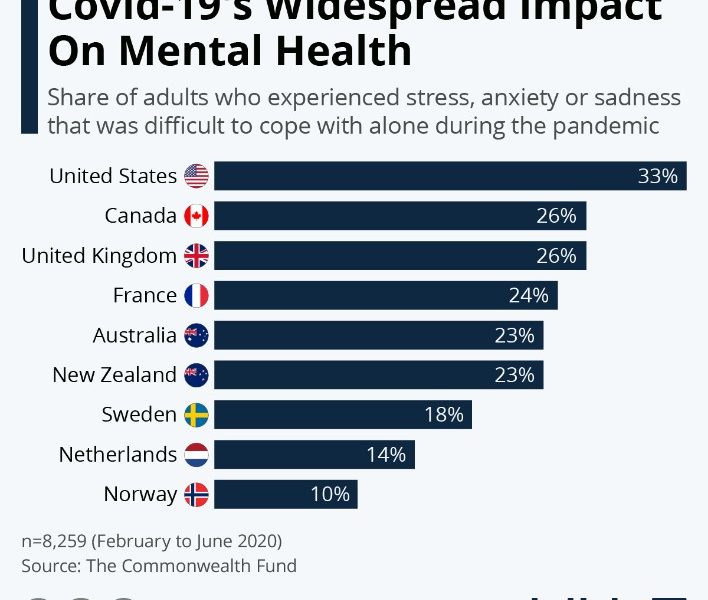
How Does Mental Health Impact Our Lives
In this analysis, we find that leading up to the pandemic, 8.5 million adults reported moderate to severe symptoms of anxiety and/or depression but did not receive treatment either through therapy or prescription drugs in the past year. Among adults reporting moderate to severe symptoms of anxiety and/or depression, receipt of mental health treatment was lowest among several demographic groups – including young adults, Black adults, men, and uninsured people.
Despite their differences, what all these mental disorders have in common is that they can disrupt daily life. A person with a mental health condition may be significantly distressed, have difficulty functioning at work or school and find it challenging to maintain healthy relationships with others.
Increased cytokines can disrupt the production of necessary chemicals (neurotransmitters) that brain cells (neurons) use to talk to each other—which results in our normal behavioral and emotional responses to our living environment. Consider looking for a therapist that integrates cognitive behavioral therapy (CBT) techniques into their practice. If stress is affecting your life or relationships, a good therapist can help you find the appropriate treatment for your specific symptoms. Here are some ideas to cope better with the stress you’re faced with and improve how your body and brain respond to stressors. When stress interferes with your everyday life and causes you to stop doing the things that you love, consider acting to take care of yourself and your future health.
How mental illnesses can affect family and friends
If your teen is being bullied at school or puts a lot of pressure on themself to perform well academically, for instance, they may be more susceptible to mental health issues. Environmental issues can also be a factor in a teenager’s mental health. Traumatic incidents such as a near-death experience or a history of abuse may increase the teen’s risk of developing a mental health condition. This means that when all the parts of the neural system don’t develop at the correct rate, a teen may experience changes in thinking, mood, and behavior. This is due to a variety of factors, including those related to growth and development, environment, and stress. Most parents would never ignore their teen’s broken bone or other obvious signs of physical injury.
If they catch the signs early enough, they may be able to change their situation and avoid harming their mental health further. One of the most common and well-researched responses to, “How do mental health problems start? Though, much like the phrase “mental health problems,” the word “trauma” encapsulates a very broad range of experiences as well. Sperling suggests that some families modify the ways they use social media. Try a “no selfie” policy or a rule that kids can post pictures of tangible objects but no photos of themselves. This way, children can share their experiences without emphasizing a focus on their appearance.
Read more about peer recovery here.
How Rwanda is spearheading efforts to tackle mental health
Just 20 minutes outdoors can help lower stress hormone levels, according to a study. If you want to get the most out of your walk and reap all of the benefits, then try walking in nature. “[This will happen] for the people that, for example, developed COVID-19, developed PTSD, developed long COVID-19, they are the people who will experience the deep trauma,” he said. “We tend to think that the impact on people as being kind of the same, but there is great variation,” he said. Dr Klapow stressed that experiences of the “new normal” have been wildly different. WHO Director-General Tedros Adhanom Ghebreyesus said the effect would last for “many years to come”, as “each and every individual on the surface of the world … has been affected”.
It can be a challenging process to take on your mental health by yourself. Talking to a trusted person, like your primary care provider (PCP), can help guide you. They can serve as someone you can talk to about concerns and can provide you with initial screenings. Depending on your responses and the results of the screenings, your PCP can refer you to a specialist to help treat you.
Keeping up with good mental health will allow you to enjoy life more. Balancing activities and responsibilities are one step toward achieving a strong mental state. A healthy mental state creates a sense of self-confidence and high self-esteem.
Only with fine-grained determinants and outcomes can data reliably inform mental health policies and identify who is most at risk. Uncertainty and uncontrollability during the pandemic have challenged rational thinking.



